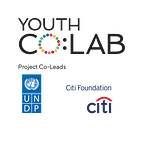YSE Series: Accelerating Asia, Closing the Existing Gap in the Entrepreneurial Ecosystem
To showcase how key stakeholders contribute to closing the existing gaps in the social entrepreneurial ecosystem, we met with Ms. Amra Naidoo, Co-Founder of Accelerating Asia — a pre-series A accelerator VC. Accelerating Asia connects investors, partners, and clients to the best startups in Asia through acceleration, investment opportunities, and engagement. Amra has spearheaded high-impact partnerships and has over a decade of experience working for social purpose and venture fund organisations.
Amra shared how Accelerating Asia supports entrepreneurs in Asia, the main characteristics investors are looking for in founders, and key pieces of advice for young social entrepreneurs in Singapore.
1. What role is Accelerating Asia playing in the entrepreneurial ecosystem?
Naidoo: In the ecosystem, there is a lot of early-stage support and education, while on the other end, there are massive funds being raised. But there is nothing in the middle that connects these two ecosystems. There is still an enormous gap between what comes out of an incubator and what is venture backable. That gap is where Accelerating Asia operates.
2. How does Accelerating Asia support the start-ups in your portfolio?
Naidoo: At Accelerating Asia, we look for companies that already have traction, customers, and leadership teams but have exhausted their networks. We work with series A investors such as Golden Gate, Sequoia, and Monk’s Hill so startups gain real-time exposure and insights from leading investors and develop those connections early in their startup journey. We also find later-stage investors refer companies to us that they feel are too early for them and require further support.
When the startups look for institutional funding, there needs to be a cleaning up of the governance structures, operational structures, and paperwork before they can be considered seriously. That is where we come in, and at the end of the Accelerating Asia program, we have beautifully packaged start-ups that have their “house in order.”
We also provide ongoing support through our regular Entrepreneur in Residence sessions which startups have access to during and after the accelerator program, plus masterclasses and opportunities for our portfolio companies.
3. What do you look for in the founders and ideas that get selected into your program?
Naidoo: Social impact is an underlying criterion for Accelerating Asia. However, startups should want to be known as awesome businesses first while also making an impact globally. We want to leave no doubt that impact work can be commercially viable and make people more confident in investing in these businesses.
We also believe that at the end of the day, it comes down to the founders. We look for the founder to have resilience, adaptability, and coachability so they can succeed under pressure during the accelerator program. The truth is there are no new ideas out there, so it comes down to how this person brings this idea to fruition.
4. In your experience, what are some of the barriers that young aspiring social entrepreneurs face in Singapore?
Naidoo: When I mentor young founders in Singapore, the biggest challenge is culture: how to speak to parents about what they are doing, going against the grain of what is expected. Perhaps this is not just a Singaporean thing. However, I also notice that youth who grow up in this culture may create more substantial businesses because of those same cultural barriers and high expectations. It never is easy unless you have a support system, and the government in Singapore is doing its part to push through those cultural norms.
On the other hand, founders focussing only locally might find it hard, as the Singaporean market is too small for bigger investment opportunities. Founders need to constantly think of what is next for them to scale and localise it to different markets.
5. Are there any themes to the impact areas for the businesses you work with and do you have any SDGs you focus on at Accelerating Asia?
Naidoo: Our impact themes fall under three main categories: Stronger Communities, Promoting Equal Access to Opportunities Adaptive industries. Accelerating Asia also supports 5 Sustainable Development Goals (SDG): Gender Equality, Decent Work and Economic Growth, Industry Innovation, Infrastructure, Reduced Inequalities, and Partnerships for the Goals.
Our portfolio companies cover a range of impact areas, for example, smart cities and climate change. ‘Smart Cities’ means better connectivity, more resilience, and more opportunities for their people. We can’t have technology tools and not think about how people can benefit from them within a smart city. Climate change is also the most significant thing we will face in this lifetime, and climate change affects all SDGs.
6. What is the role of entrepreneurship when it comes to closing the gap for Vulnerable Groups?
Naidoo: The vast majority of entities that I see working on this theme are non-profits, foundations, and development organisations, as they provide tools and resources easily accessible. The truth is that a business might not always be the right solution to close this gap. But we have seen successful businesses emerging in this area of work too. In my opinion, there is always space for all types of organisations to contribute to a better future.
This blog is part of our Singapore Youth Social Entrepreneurship (YSE) Series. Stay tuned as in our next few blogs; we will continue to showcase the Youth Social Entrepreneurship Ecosystem in Singapore, as well as address some of the main challenges and opportunities for the youth willing to take this journey or already on it.
About Youth Co:Lab
Co-created in 2017 by the United Nations Development Programme (UNDP) and the Citi Foundation, Youth Co:Lab aims to establish a common agenda for countries in the Asia-Pacific region to empower and invest in youth, so that they can accelerate the implementation of the Sustainable Development Goals (SDGs) through leadership, social innovation and entrepreneurship. To learn more about the Youth Co: Lab, visit: https://www.youthcolab.org/
